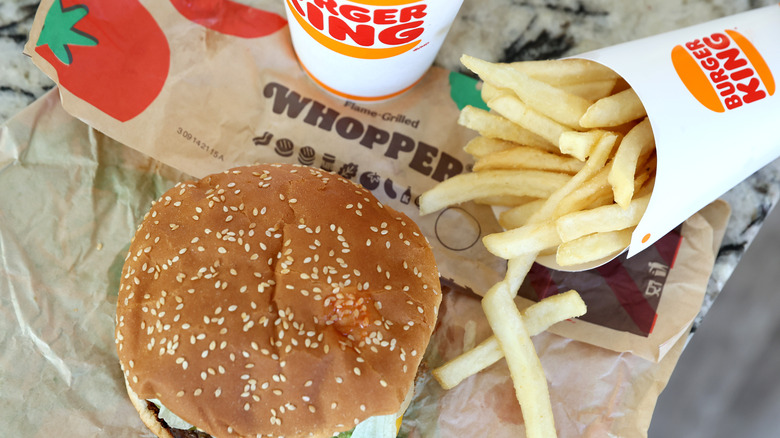9 Burger King Locations Are Under Fire For Violating Child Labor Laws
Burger King is one of the most recognizable names in fast food. They operate in over 100 countries with 18,700 locations, per Restaurant Brands International. With thousands and thousands of employees across the globe, it's essential that they stay in check with labor laws.
Although the Burger King website states that the fast-food restaurant only hires from ages 16 and up, there are a few different positions that younger teenagers can fill. Business Insider reports that 14- and 15-year-olds can work cash registers, clean, do prep work, and cook — though they cannot remove any food from hot ovens or work inside freezers.
During the school year, minors under 16 have specific laws regarding how many hours they can work, according to the U.S. Department of Labor. Several South Carolina Burger King locations have found themselves in hot water for violations of child labor laws after scheduling their minor employees for too many hours.
Minor employees were overworked
The U.S. Department of Labor launched an investigation into nine South Carolina Burger King locations and found that they had violated child labor laws after reviewing timesheet records. Across the stores, 26 different employees between the ages of 14 to 15 were found to be overworked while in school. Under the Fair Labor Standards Act, minors cannot work more than three hours per day on a school day and cannot work past 7 p.m.
The restaurants will reportedly be working to improve working conditions after paying $17,966 in civil money penalties for the violations. Going forward, managers at each location will be required to sign an acknowledgment after reviewing a fact sheet about employing minors, and new managers will be required to go through training. A section regarding child labor laws will be added to Burger King employee handbooks for easy reference. Additionally, any minors hired in the future will receive clear communication regarding hour restrictions and be taught how to report any future violations.

